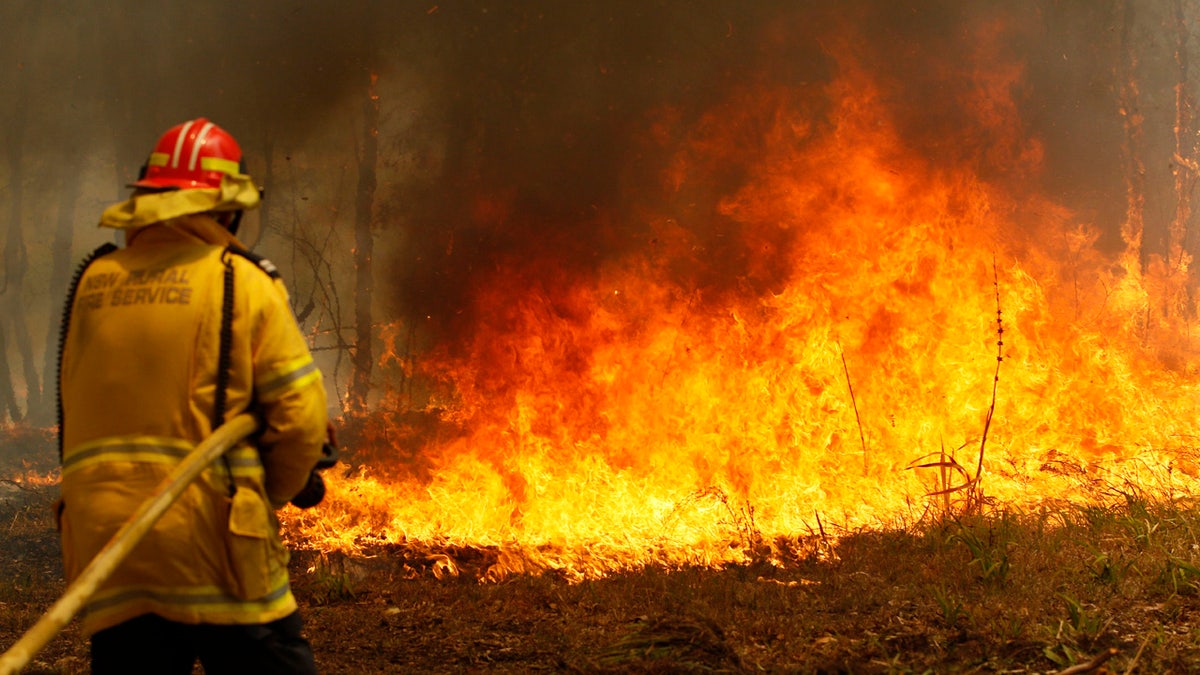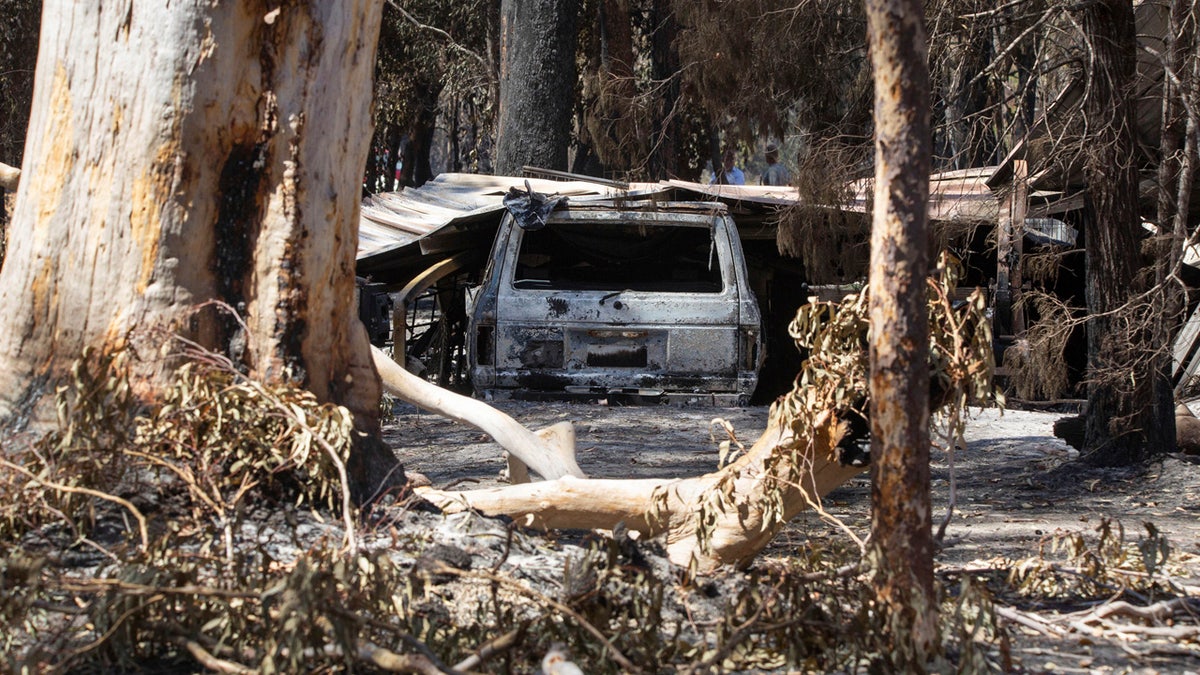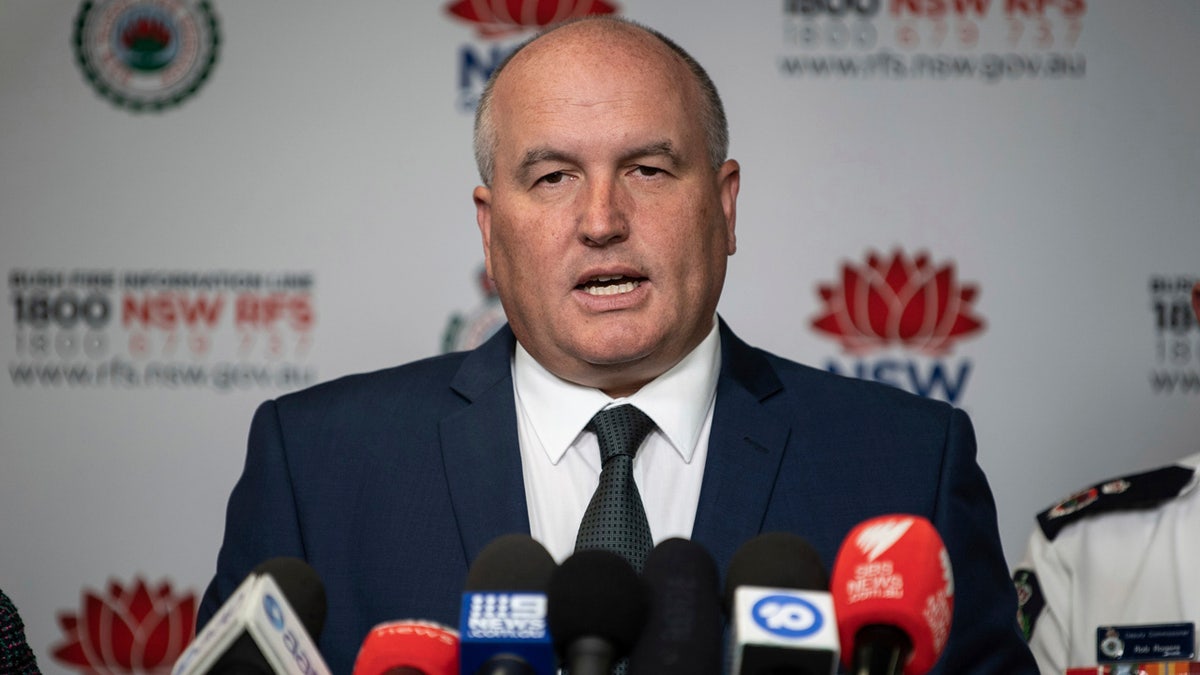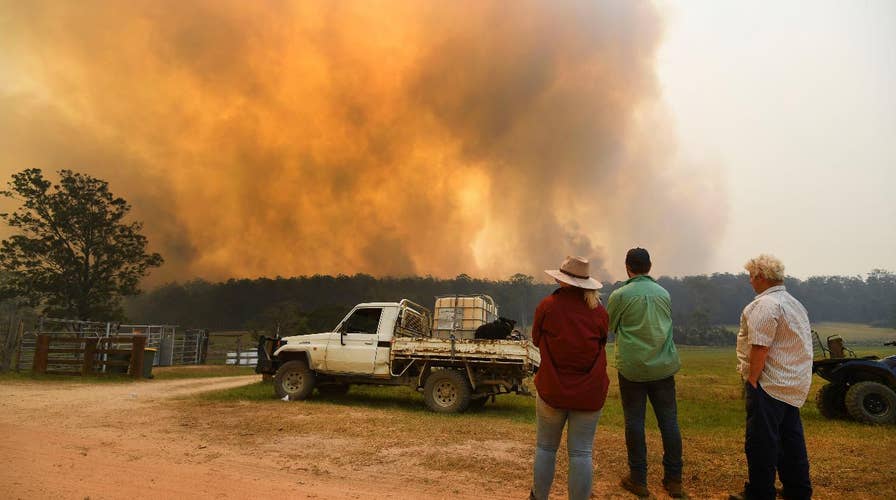Australian firefighters struggle to fast-moving flames as bushfires rage out of control
New South Wales remains under a week-long state of emergency; Benjamin Hall reports.
The most populated area of Australia is facing the threat of "catastrophic" wildfire danger on Tuesday, prompting officials to issue the highest level of fire danger warning since the ratings were introduced a decade ago.
New South Wales, the country's most populous state where Sydney is located, on Monday declared a seven-day state of emergency, which allows the fire service to direct government agencies, including ordering the shutdown of utilities or taking possession of property to help the emergency response.
Premier Gladys Berejiklian said the last time a state of emergency was declared in New South Wales was in 2013, when there were extensive fires in the Blue Mountains west of Sydney.
"The catastrophic weather conditions mean that things can change very quickly," she told reporters in Sydney.
AUSTRALIA WILDFIRE VICTIM'S FRANTIC LAST WORDS TO DAUGHTER-IN-LAW: 'WE'RE ON FIRE!'
Since Friday, over 60 fires have erupted in the northeast part of the state, scorching more than 3,800 square miles of forests and farms, destroying 1,500 homes and leaving three dead. At least 40 of the fires are out of control, according to Sky News.

Firefighters work to contain a bushfire along Old Bar road in Old Bar, Saturday, Nov. 9, 2019. (Darren Pateman/AAP Image via AP)
Fire conditions in New South Wales are forecast to be worse on Tuesday than they were on Friday, with high temperatures combined with strong, dry winds.
New South Wales State Emergency Services Minister David Elliott said Monday that residents were facing what "could be the most dangerous bushfire week this nation has ever seen."

Damage caused by bushfire is seen at resident Brian Williams' resort at Lake Cooroibah Road in Noosa Shire, Queensland, Australia, Monday, Nov. 11, 2019. (Rob Maccoll/AAP Images)
The state government announced that more than 600 schools and technical colleges will be closed on Tuesday because of the fire risk. Australian military personnel are supporting 1,500 firefighters who were battling 60 blazes across the state and health authorities have urged residents not to go outside.
The warning issues Monday were the first time the "catastrophic" warning has been used since the fire danger ratings were introduced in 2009, according to Sky News. The worst fires in Australia's modern history killed 173 people and injured 414 in 2009, a day dubbed "Black Saturday."
Rural Fire Service Commissioner Shane Fitzsimmons said the danger this week is "off the conventional scale," and that fires can spread up to 12 miles ahead of established blazes with conditions that will not even protect fire-proofed homes.
"Relocate while things are calm without the pressure or anxiety of fires bearing down the back door," he said Monday.
The annual Australian fire season, which peaks during the Southern Hemisphere summer, has started early after an unusually warm and dry winter. The crisis has reignited debate on whether Australia has taken enough action on climate change.
Carol Sparks, a mayor who lost her home in a fire near the New South Wales town of Glen Innes, told the Associated Press climate change had contributed to the emergency.
"It's climate change, there's no doubt about it. The whole of the country is going to be affected. We need to take a serious look at our future," she said.

In this Oct. 9, 2019, photo, New South Wales (NSW) state Emergency Services Minister David Elliott speaks during a press conference at the NSW Rural Fire Service Headquarters at Sydney Olympic Park in Sydney. (James Gourley/AAP Images via AP)
But other residents in the fire zone blame the intensity of flames on environmentally focused lawmakers who have prevented regular controlled burning of forests to reduce the fuel load in the tinder-dry landscape for fear of smoke and harm to wildlife.
CLICK HERE FOR THE FOX NEWS APP
The leader of the minor Australian Greens party, Richard Di Natale, and the party's climate spokesman, Adam Bandt, blamed Prime Minister Scott Morrison's government for the crisis.
"Scott Morrison has not got the climate crisis under control," Bandt said.
Morrison's deputy, Michael McCormack, said Monday that now was not the time for political debate on climate change.
"What people need now is a little bit of sensitivity, understanding and real assistance. They need help; they need shelter," McCormack said. "They don't need the ravings of some pure, enlightened and woke capital city greenies at this time."
The Associated Press contributed to this report.








































